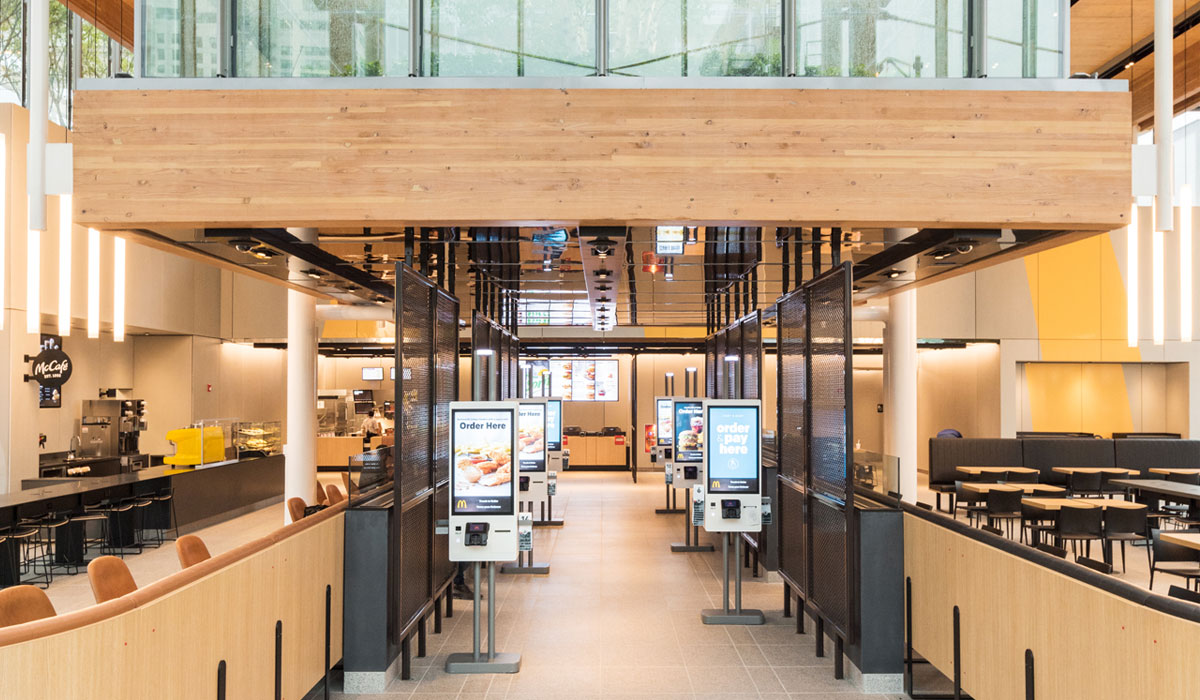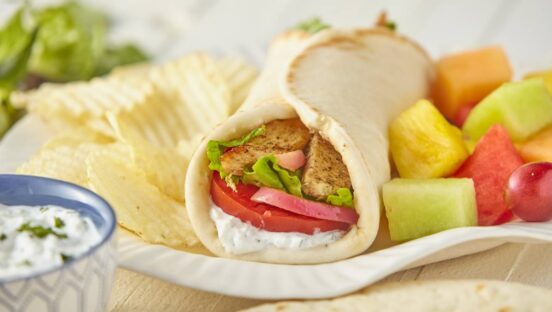McDonald’s franchisees voted a “resounding yes,” to needing a self-funded advocacy group during an October 10 meeting in Tampa, Florida. More than 400 McDonald’s owners fought through Hurricane Michael’s impending arrival for an organizational meeting of what the group is calling the “National Owners Association.” This “united, representative owner advocacy group,” is being formed so franchisees can work with McDonald’s corporate to “positively impact the system for the benefit of the franchisee owners, our employees, customers, the company, and ultimately the shareholders,” a meeting recap posted online read. Another meeting, scheduled for December 12 in Dallas, is already in the works.
Reports of the Tampa meeting, themed “Leading Together—Again” surfaced last week when The Wall Street Journal reviewed a letter sent to franchisees, saying, “We believe it’s critical for us to come together to discuss the state of the business, unvarnished and unedited. It’s only through honest dialogue that we will get to real solutions.”
Franchisees, reportedly, hoped to address issues related to shrinking cash flow and the burden of McDonald’s remodel program, among other concerns. Per the WSJ, one operator said he was collecting debt to remodel units in line with “new specifications from McDonald’s executives.” About 95 percent of McDonald’s 14,000-plus U.S. stores are currently franchised.
The Tampa meeting began with a video that “reminded us of the importance of the three-legged stool,” the recap read, “the need for mutual respect, the importance of the relationship, and the philosophy of ‘intelligent and selective discounting.’”
Mark Salebra, a second-generation operator, presented on the need for a self-funded advocacy, stressing financial, franchising, and relationship goals, along with needed leadership/advocacy accountability. In this, the desire for independent advisers.
Accounting firm Mize Houser then provided a financial update. Carmen Caruso, a Chicago attorney, broke down the group’s rights and obligations under both the franchise agreement and the BBV2020 letter, along with some best practices for independent associations.
This group could form a first for McDonald’s, although they’re not uncommon in quick service. Jack in the Box, for example, has a National Jack in the Box Franchisee Association that represents some 2,000 of its 2,240 units. Recently they voted “no confidence” and asked CEO Lenny Comma to step down. Franchisee-elected advisory boards are also relatively common. Burger King, Tim Hortons, Wendy’s, and Subway are other companies with independent franchise associations.
At the Tampa meeting, according to the recap, it was noted that the “best way to impact the system was to work positively,” with McDonald’s.
McDonald’s franchisees have been tasked with plenty of changes lately, from the Experience of the Future redesign, which centers on kiosks, to fresh beef Quarter Pounders, new equipment for coffee beverages, curbside, and additional digital changes. McDonald’s value strategy has also shifted in recent months with last year’s $1 $2 $3 Dollar Menu swap and the recent 2 for $5 Mix & Match deal. McDonald’s featured a 2 for $4 breakfast sandwich promotion in Q2.
A blog on the National Owners Association’s site addressed a “control shift from local to national in the last two years.”
“The Corporation’s Strategy to nationalize all aspects of our business. This has clearly happened through the elimination of regions and coops, BBV2020, ROIP, etc. The next control change will be the transfer of Menu Board Pricing to Deloitte and Touché,” Blake Casper wrote. “Speaking on behalf of myself, I will not be transferring my menu pricing control to OPNAD. Our ability to price our menu boards may be one of the last controls we still have. More importantly, I believe in our ability [with good counsel], to price and market to our customers all the while balancing the costs that are inherent to our business. I will gladly bet on 1,800 seasoned McDonalds owners over the best Wall Street mathematicians.”
This past January, Nomura Instinet analyst Mark Kalinowski conducted a franchisee survey of 26 domestic operators representing 286 locations. His small sample found that some operators were concerned the tiered value menu would drive sales early but then lower checks and hurt their ability to control menu prices, as well as increase food cost.
“The $1 $2 $3 Dollar Menu does give customers choices, but it isn’t profit-oriented,” a franchisee said, according to CNBC.
“Owner/Operators around the country are not happy with the huge reinvestments they are forced to do,” one franchisee told Kalinowski, as CNBC reported. “Large numbers of operators will be put in financial trouble with the amounts of money they will be spending. Operators are not happy with the company direction but they will not say anything fearful of retaliation. The company [wants] little or no input from operators. The company looks at operators as the problem instead of the solution.”
This wasn’t a sentiment shared by all, however. Some lauded McDonald’s updates said they were pleased with the traffic increase after customer traffic dropped in each of the last three fiscal years before it started to climb in 2017.
“While it’s hard to keep up with all the changes, I think McDonald’s is making many of the right moves and we are about to make a quantum leap over our competitors,” a franchisee said.
On the $1 $2 $3 Dollar Menu note, racing ahead to July, CEO Steve Easterbrook said in a conference call that it performed as executives hoped, especially in regards to add-ons. CFO Kevin Ozan said it has driven incremental sales and guest counts “with our budget-basic value customers.” Additionally, it inspired competitors to pulse new value deals.
Easterbrook also called McDonald’s rapid evolution to “Experience of the Future,” stores “quite remarkable.” McDonald’s converted 1,300 restaurants to the in a 90-day Q2 stretch. That measures to roughly 10 additional restaurants every day. To date, McDonald’s has more than 5,000 updated units, north of one-third of its U.S. footprint.
Domestic same-store sales lifted 2.6 percent at units open for at least 13 months in Q2, marking 12 consecutive quarters of positive gains. Comps grew 4 percent globally. Revenue in Q2 was $5.35 billion, down from $6.05 billion in the year-ago period.







